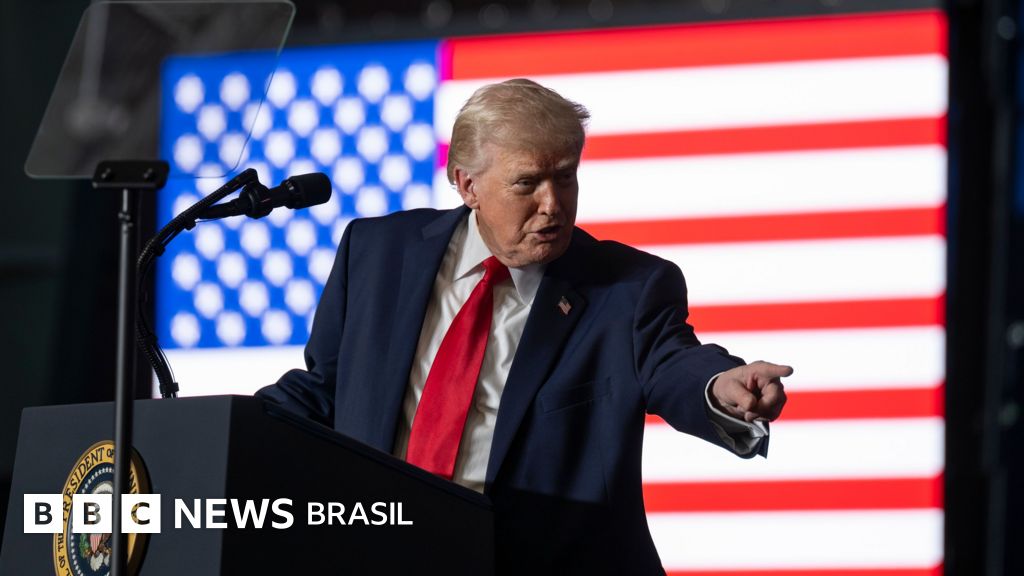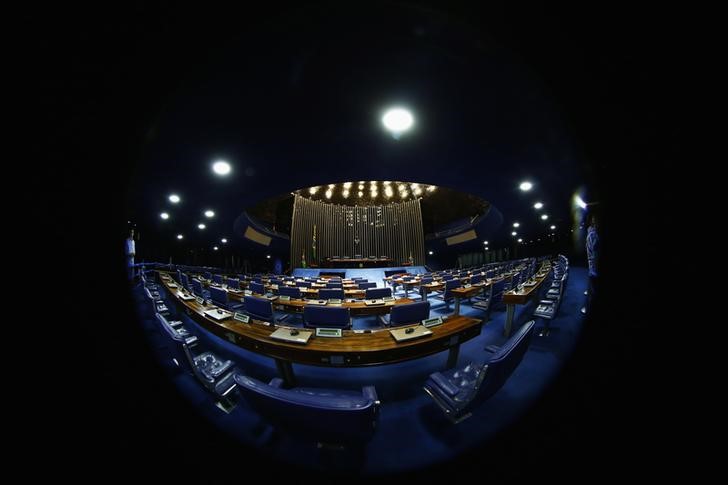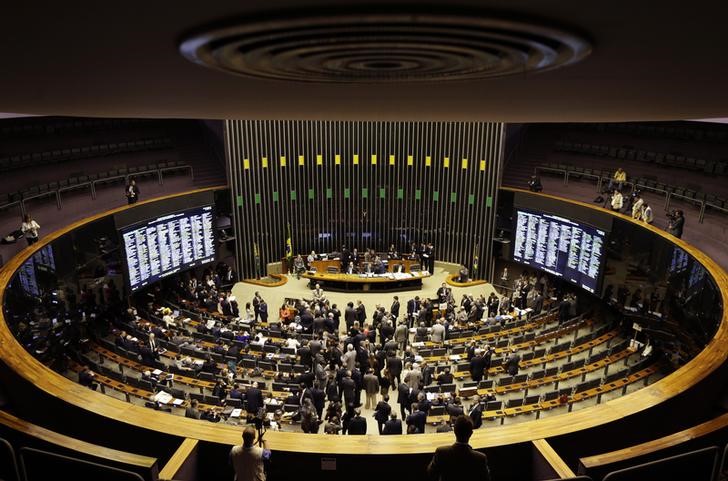The Trump administration has made a series of startling admissions about the people it is killing in its undeclared war against suspected drug smugglers in the Caribbean Sea and the Pacific Ocean. Trump officials acknowledged in separate briefings provided to lawmakers and staffers on Thursday that they do not know the identities of the victims of their strikes, and that the War Department cannot meet the evidentiary burden necessary to hold or try survivors of the attacks. Such victims who find themselves in the water are now deemed “unprivileged belligerents,” a murky designation under international humanitarian law.
Since September 2, the U.S. military has been attacking boats in the Caribbean and eastern Pacific Ocean, killing more than 60 civilians. The Trump administration insists the slayings are permissible because the U.S. is engaged in “non-international armed conflict” with “designated terrorist organizations,” or DTOs. Two government officials told The Intercept that the administration secretly declared a “non-international armed conflict” weeks if not months before the first attack of the campaign.
Trump has justified the attacks, in a War Powers report to Congress, under his Article II constitutional authority as commander in chief of the U.S. military and claimed to be acting pursuant to the United States’ inherent right of self-defense as a matter of international law. The Justice Department’s Office of Legal Counsel has also produced a classified opinion that provides legal cover for the lethal strikes.
Experts in the laws of war and members of Congress say the strikes are illegal extrajudicial killings because the military is not permitted to deliberately target civilians — even suspected criminals — who do not pose an imminent threat of violence. The summary executions are a significant departure from standard practice in the long-running U.S. war on drugs, in which law enforcement arrested suspected drug smugglers.
“We are not in an armed conflict with these cartels. And so this is just murder.”
The administration has no plans to seek an authorization for the use of military force similar to the 2001 AUMF, which authorized counterterrorism operations by the U.S. military against those responsible for 9/11, Pentagon briefers told lawmakers on Thursday. “Even if Congress authorized it, this would still be illegal under U.S. and international law because we are not in an armed conflict with these cartels,” Rep. Sara Jacobs, D-Calif., a member of the House Armed Services Committee who attended the briefing, told The Intercept. “And so this is just murder.”
Jacobs said the Pentagon officials who briefed her on Thursday admitted that the administration does not know the identities of all the individuals who were killed in the strikes. “They said that they do not need to positively identify individuals on the vessels to do the strikes,” Jacobs told The Intercept. “They just need to show a connection to a DTO or affiliate.”
Three people are known to have survived the U.S. attacks: two on an October 16 strike, and one during a series of attacks on October 27. But none have been prosecuted for the supposed drug smuggling for which Trump claims the right to summarily kill them. “They said they could not actually hold or try the individuals that survived one of the attacks — in our country or one of the repatriating countries — because they could not satisfy the evidentiary burden,” said Jacobs. “It led some to speculate that there’s a higher evidentiary standard to hold someone than to kill them, which is problematic.”
Pentagon press secretary Kingsley Wilson did not reply to questions about why the Department of War is unwilling to positively identify the people it is killing and cannot satisfy the evidentiary burden necessary to hold or prosecute suspects.
Brian Finucane, a former State Department lawyer who is a specialist in counterterrorism issues and the laws of war, noted that Trump administration’s inability to identify the people it is killing “certainly undermines the labelling of these individuals as ‘narco-terrorists.’”
Jacobs and other government officials who spoke to The Intercept conjectured that the administration may not want to reveal its sources and methods of determining that the targeted craft are smuggling drugs. “These individuals don’t matter in the grand scheme of things. It’s not worth it. If it’s not the leader of the cartel, you’re not burning your sources,” said one government official, referring to so-called top secret sensitive compartmented information involving human sources and signals intelligence integral to the U.S. attacks.
Three government officials who spoke to The Intercept said that the Pentagon deems survivors of strikes in the water to be “unprivileged belligerents,” a term for those who are not entitled to immunity from prosecution for lawful acts of war and do not benefit from prisoner of war status if they fall into enemy hands. The term has been used to designate members of a non-state armed group in a non-international armed conflict. Experts noted that the designation was used during the global war on terror for Al Qaeda and associated groups.
“The problem with DoD calling cartels ‘unprivileged belligerents’ is that the U.S. is not actually in a non-international armed conflict — a legal term of art that, to be applicable, requires specific facts that just aren’t the current reality — and so cannot lawfully use lethal force as a first resort,” said Sarah Harrison, who advised military leaders on extrajudicial killings in her former role as associate general counsel at the Pentagon’s Office of General Counsel, International Affairs. “Notwithstanding the fictional narrative being pushed by the White House, the U.S. is not in a war with these groups and the people DoD is targeting are civilians who should be afforded due process.”
Wilson, the Pentagon press secretary, did not reply to a request for comment about the reasons behind the War Department’s use of unprivileged belligerent status for attack survivors.
The Thursday House briefing was led by Rear Adm. Brian H. Bennett, a military officer overseeing Special Operations for the Pentagon’s Joint Staff with assistance from Richard Tilley who serves as the acting assistant secretary of war for special operations and low-intensity conflict. Military lawyers had been scheduled to join them but were withdrawn at the last moment on orders from the Trump administration, according to two government officials who spoke to The Intercept on the condition of anonymity. As a result, the Pentagon officials were unable to provide a full explanation of the legal basis for the military strikes.
“I found their justification for what they’re doing so flimsy that it makes the case for the Iraq War look like a slam dunk.”
“At a classified HASC briefing on recent counternarcotics operations in the Pacific and Caribbean, the Pentagon pulled its lawyers — the exact people who would supply a legal justification for these strikes — from the briefing with no notice,” Rep. Seth Moulton, D-Mass., explained. “If the Trump Administration thinks these strikes are legally justified, hiding from Congress sends the opposite message.”
“I found their justification for what they’re doing so flimsy that it makes the case for the Iraq War look like a slam dunk,” he said on MSNBC’s “Morning Joe.” “It was that bad.”
The Pentagon has been withholding key information about the attacks and the list of DTOs for almost two months. During a Wednesday press conference, Sen. Mark Warner of Virginia, the senior Democrat on the Senate Intelligence Committee, blasted the Trump administration for conducting a secret briefing on the legal rationale for the strikes for a select group of Republican senators on Wednesday after Secretary of State Marco Rubio had assured Warner that the Justice Department’s Office of Legal Counsel opinion would be provided.
“Shutting Democrats out of a briefing on U.S. military strikes and withholding the legal justification for those strikes from half the Senate is indefensible and dangerous. Decisions about the use of American military force are not campaign strategy sessions, and they are not the private property of one political party,” Warner said in a statement. “This partisan stunt is a slap in the face to Congress’ war powers responsibilities and to the men and women who serve this country. It also sets a reckless and deeply troubling precedent. The administration must immediately provide to Democrats the same briefing and the OLC opinion justifying these strikes, as Secretary Rubio personally promised me that he would in a face-to-face meeting on Capitol Hill just last week.”
Two government officials told The Intercept that a select group of lawmakers were able to see the OLC opinion and list of DTOs in a restricted setting on Thursday, following Warner’s press conference. Warner’s office did not return a request for comment about whether he was one of those lawmakers.
Sen. Elissa Slotkin, D-Mich., believes that there may be “dozens” of DTOs. Jacobs agreed. “Dozens is the range,” she told The Intercept.
Jacobs, despite her role on the Intelligence and Special Operations subcommittee, has yet to see either the Justice Department opinion or DTO list. “They told us is that they’re working on getting the OLC memo, the list of DTOs, and one or two other things that we’d asked for over to us, but that they wouldn’t give us a timeline,” she said.

 German (DE)
German (DE)  English (US)
English (US)  Spanish (ES)
Spanish (ES)  French (FR)
French (FR)  Hindi (IN)
Hindi (IN)  Italian (IT)
Italian (IT)  Portuguese (BR)
Portuguese (BR)  Russian (RU)
Russian (RU) 





:strip_icc()/i.s3.glbimg.com/v1/AUTH_59edd422c0c84a879bd37670ae4f538a/internal_photos/bs/2023/l/g/UvNZinRh2puy1SCdeg8w/cb1b14f2-970b-4f5c-a175-75a6c34ef729.jpg)










Comentários
Aproveite ao máximo as notícias fazendo login
Entrar Registro